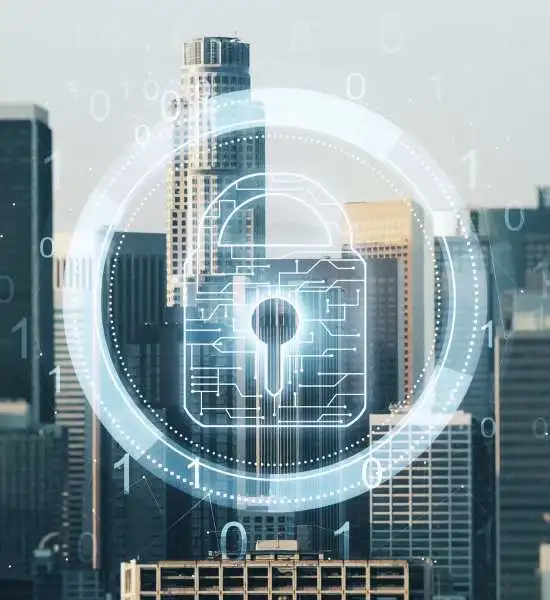Protect your organization's sensitive data and digital infrastructure with our advanced endpoint security solutions. Our comprehensive approach ensures that every endpoint, including desktops, laptops, mobile devices, and servers, is secured against a wide array of cyber threats.
The enterprises store and manage vast amounts of sensitive data, making them attractive targets for cybercriminals. The imperative for cybersecurity in enterprises lies in safeguarding this critical information from unauthorized access, data breaches, and other cyber threats. A well-executed cybersecurity strategy ensures business continuity, brand reputation, and the trust of your customers.

Enterprise cybersecurity isn't a static concept; it evolves alongside digital technologies and cyber threats. With the rapid proliferation of cloud computing, IoT devices, and remote work, the attack surface has expanded. New threats emerge regularly, necessitating adaptable cybersecurity measures.

Understanding the unique risks your enterprise faces is the first step in developing a robust cybersecurity strategy. Identifying vulnerabilities and potential threats is critical.
Limiting access to sensitive data is essential. Implement strict user access controls and strong authentication mechanismss
Encrypting data both at rest and in transit ensures that even if a breach occurs, the data remains unreadable to unauthorized parties.
Deploying robust firewalls and intrusion detection systems helps in identifying and mitigating potential threats.
Employees are often the weakest link in cybersecurity. Regular training helps them recognize and avoid threats like phishing and social engineering.
In the event of a breach, having a well-defined incident response plan can minimize damage and downtime.
Keeping all software and systems up to date with the latest security patches is crucial to plug known vulnerabilities.

AI and machine learning play a pivotal role in modern enterprise cybersecurity. These technologies enable the automation of threat detection, anomaly identification, and even the prediction of potential threats. By analyzing vast datasets in real time, AI can identify patterns and behaviors that may indicate a cyberattack, allowing for swift action.

With the growth of IoT devices in the enterprise environment, securing these endpoints is a unique challenge. AI-driven monitoring can identify unusual behavior in these devices and provide an additional layer of security.

The migration of enterprise data to the cloud introduces new security challenges. A comprehensive cloud security strategy involves encryption, access control, and continuous monitoring to ensure the safety of your data.

Securing every device connected to your enterprise network is crucial. Endpoint security solutions, driven by AI, can detect and respond to threats on devices in real time.

The zero trust security model is gaining traction in the enterprise cybersecurity landscape. It advocates verifying every user and device trying to access resources on the network, even if they are inside the corporate perimeter.

Enterprises must also navigate a complex web of compliance and regulations, depending on their industry. Staying compliant not only helps avoid legal trouble but also ensures that cybersecurity practices are up to date.

© 2024 Digitdefence. All Rights Reserved. Designed and developed by eflot.